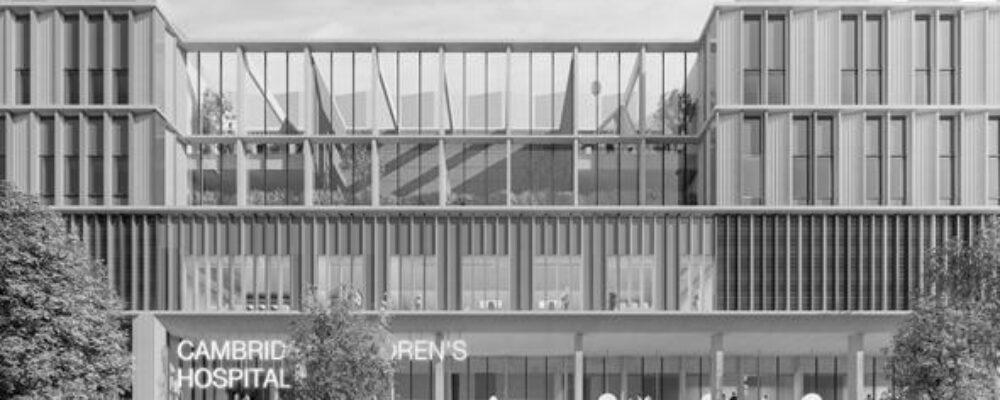Civica Rx, a nonprofit drug manufacturer formed by US health systems and philanthropic groups, has significantly improved drug supply security and reduced costs for 20 medications, according to a study in NEJM Catalyst. Civica’s unique structural approach prioritizes access over profit and has proven effective in addressing generic drug shortages and high prices. It provides over 75 critical medications to US health systems and is governed by stewards, ensuring uniform pricing for all customers. Founded by seven health systems and supported by philanthropies, Civica has expanded to over 50 health systems and administered more than 56 million patient doses, making a substantial impact on healthcare supply chains.
Civica Rx, a not-for-profit drug manufacturer founded by seven US health systems and three philanthropic organisations, increased supply security and lowered cost on aggregate for 20 drug products, according to the first empirical evidence of Civica’s impact published in the journal NEJM Catalyst.
“Results show that Civica was able to improve generic drug access above the wholesaler model,” says the article in NEJM Catalyst, a publication that is part of the New England Journal of Medicine family. “Chronic drug shortages have been an extremely challenging problem and elusive to sustainable improvement in the past. This makes these early results highly promising.”
The NEJM Catalyst article (entitled “Vaccinating Health Care Supply Chains Against Market Failure: The Case of Civica Rx”) – is co-authored by the co-founders of the Healthcare Utility Initiative at Cambridge Judge Business School: Carter Dredge, Senior Vice President and Lead Futurist at SSM Health in St. Louis, Missouri (one of Civica’s founding health systems), who is a Business Doctorate candidate at Cambridge Judge, and by Stefan Scholtes, Dennis Gillings Professor of Health Management at Cambridge Judge.
Key breakthrough is structural rather than technological
“The results of this study are very encouraging for patients and health systems,” says Carter Dredge. “The innovation of Civica is not technological but rather structural: a new business model that injects a new type of supplier into a decades-old market for generic drugs in order to address a market failure.”
Civica is based on new business model called a health care utility (HCU) that prioritises access over profit. It was founded in 2018 to address generic drug shortages and high prices that have plagued health systems in the US and elsewhere, and now provides more than 75 critical medications at risk for shortages to US health systems.
Government intervention hasn’t solved problems in cost and supply
“Some problems in health care are so complex that traditional private-sector or governmental interventions alone have not been able to solve the problems,” the study says. “Although competition increases quality and reduces the cost of goods and services across a wide spectrum of industries, health care seems intractably resistant to standard forms of competition — particularly in its hyperspecialized supply chains.”
For example, the study says that the average price in 2022 for the uninsured for a box of five pen cartridges of insulin used to manage diabetes was more than $500, which results in 25% of Americans who rely on insulin being forced to ration their medications because of cost.
Study favourably compared Civica to 62 drug wholesalers
The study focused on a cohort of 14 critical and shortage-prone hospital drugs that represented 20 distinct products (some medicines have multiple products due to different dose and vial size) between 2020 and 2022. Data comes from internal hospital pharmacy operations systems, supply chain purchasing databases, wholesaler product information, the American Society of Health System Pharmacists, and Civica.
The authors estimated that Civica fulfilled its contractually guaranteed volume at 96%, whereas the wholesalers fulfilled their orders at 86%, with the difference being statistically significant (p=0.03). Further, Civica offered an additional product access benefit of 43% above the contractual minimum volume.
In addition, wholesaler prices at the order level were estimated to be on average 46% above the Civica price for the same product in the same year; however, through highly proactive health system purchasing efforts to buy more volume when prices were low from the 62 non-Civica manufacturers, this closed the actual achieved cost-savings gap between the wholesalers and Civica to 2.7% in aggregate, with Civica still being the lower-cost option.
(The 14 medicines are: bivalirudin to prevent blood clotting, the antibiotic daptomycin, anti-inflammatory dexamethasone, narcotic pain medicine fentanyl, pre-surgery medicine katamine, labetalol for hypertension, local anesthetic lidocaine, seizure medication lorazepam, naloxone to treat opioid overdose, neostigmine for anesthesia reversal, ondansetron to prevent nausea, rocuronium bromide for general anesthesia, sodium bicarbonate for cardiac arrest, and the antibiotic vancomycin.)
New model sells drugs at same transparent price to all health systems
The healthcare utility model is governed by stewards rather than owned, and pricing is uniform for all customers in a bid to maximise access rather than profits. Civica members purchase Civica medications at the same transparent price, as determined by the lowest appropriate cost necessary to sustainably provide the drugs over a 5-year period.
The seven large US health systems that founded Civica are: Catholic Health Initiatives, now CommonSpirit Health; HCA Healthcare; Intermountain Healthcare; Mayo Clinic; Providence St. Joseph Health; SSM Health; and Trinity Health. The three founding philanthropies are the Gary and Mary West Foundation, the Laura and John Arnold Foundation, and the Peterson Center on Healthcare.
Civica now serves more than 50 US health systems
The seven founding health systems have since been joined by more than 50 other health systems covering more than 1,500 hospitals and about 225,000 hospital beds. Through July 2023, more than 56 million cumulative patient doses of Civica medicines have been administered.
In conclusion, the authors say:
“The problems we face in health care are daunting, but many of them are solvable with the right approach. In learning from Civica’s experience, some of the most fundamental answers may already be at our fingertips.
“This article provides the first empirical evidence that this approach is working.”
“The University of Cambridge is a public collegiate research university in Cambridge, England. Founded in 1209, the University of Cambridge is the third-oldest university in continuous operation.”
Please visit the firm link to site






